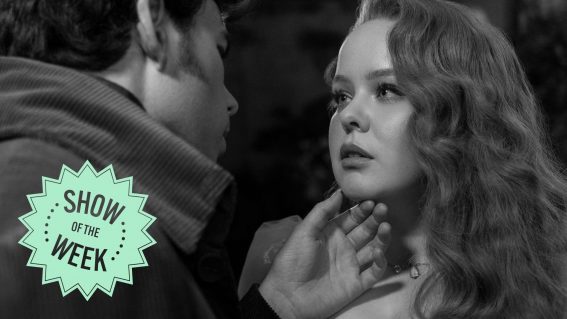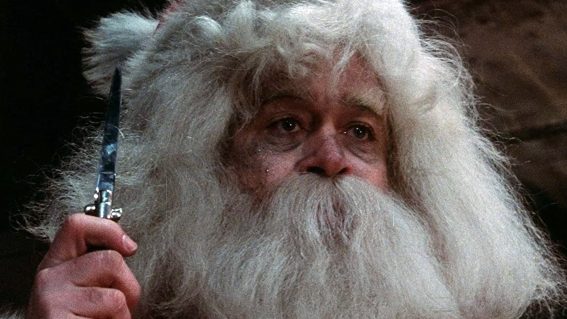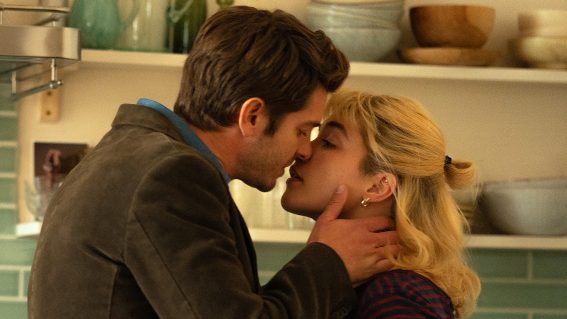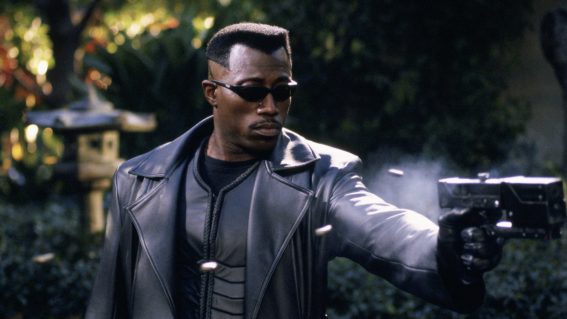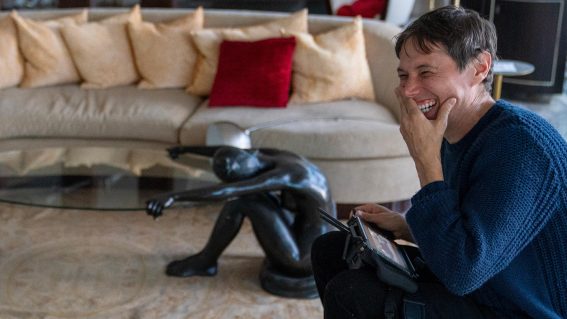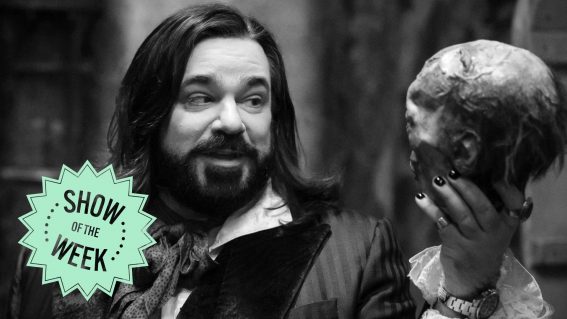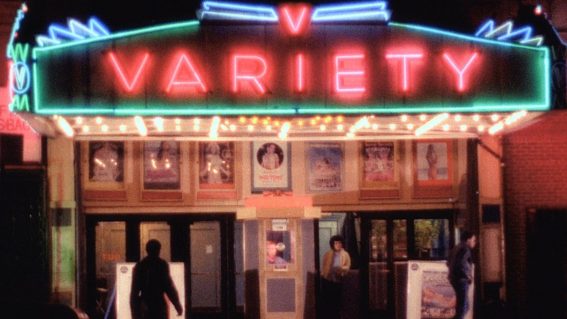The amount of sex in Bridgerton isn’t remarkable – it’s how it privileges women’s fantasies
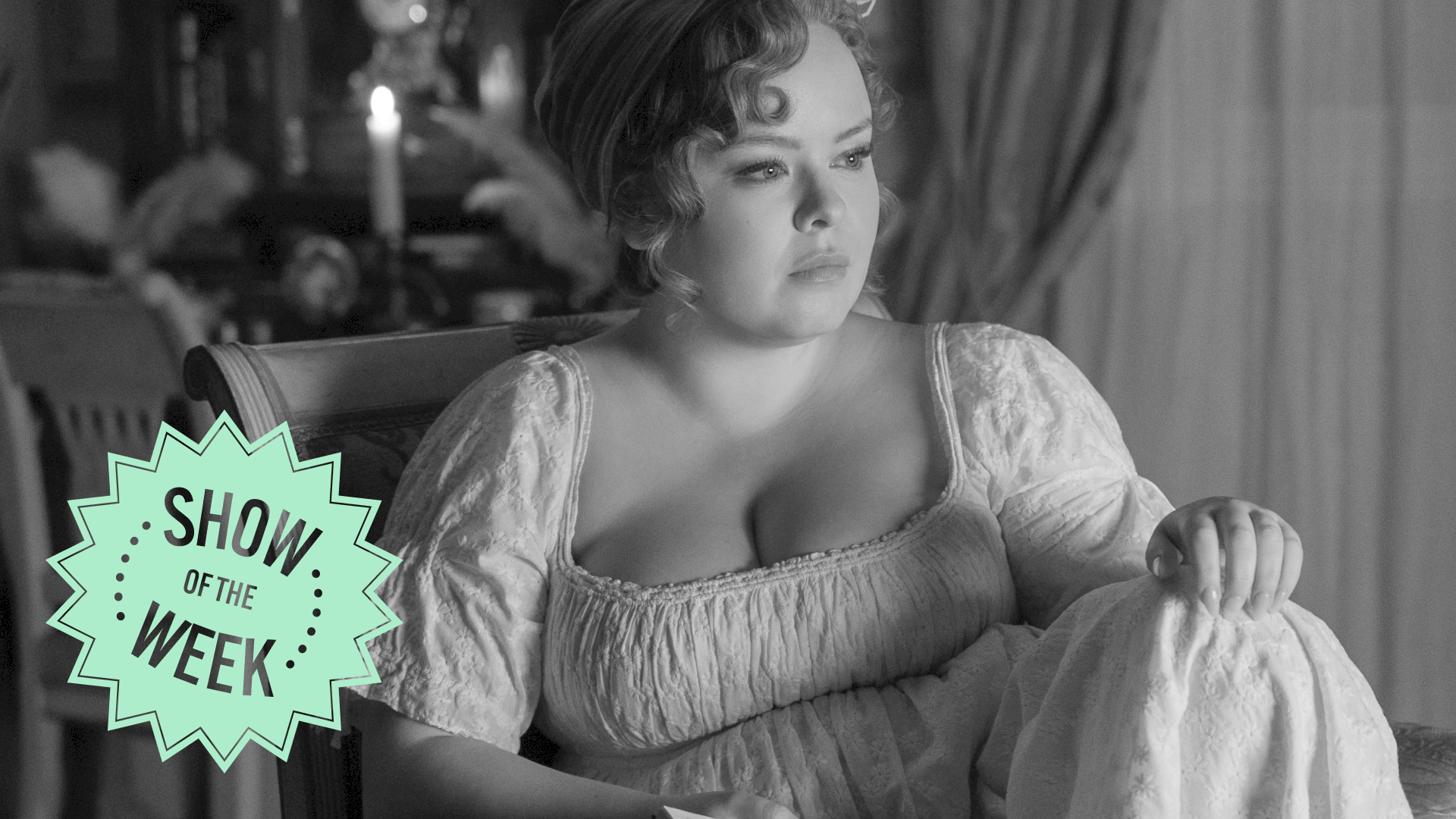
Clarisse Loughrey’s Show of the Week column, published every Friday, spotlights a new show to watch or skip. This week: Part two of Bridgerton‘s third season arrives.
You’ll get a good sense of how warped mainstream culture’s approach to sex is purely by observing how people talk about Bridgerton. I won’t launch any kind of direct attack, but I’ve seen two very common extremities in reactions both professional and unprofessional: the puritanical sensibility is frightened and cowering in the corner, while an entirely different set complains that the show simply isn’t horny enough, and bears a moral responsibility to display an ascribed number of male posteriors, as if it were some kind of illicit eighties erotic thriller.
Either way, the talk of sex is constant, which seems a little pointless for a show that really doesn’t portray it in any particularly extreme way. Some of the more negative reviews of season three, part two, have either stated there’s too much sex or too little—to be objective about it, there are two scenes, and a handful of quick cutaways. One of them is, in fairness, a little longer than you’d typically expect. But, on the whole, that’s an entirely unremarkable amount of sex for an adult drama.
A lot of the blame lies on the marketing department. At least in season one, they were eager to spread the idea this was “not your mother’s Jane Austen adaptation”. But I’m not sure that fully explains why I can barely leave the house now without colliding into a Bridgerton tea set collection, a Bridgerton macaron line, or an interactive Bridgerton “nearly get smothered by an escaped hot air balloon” experience.
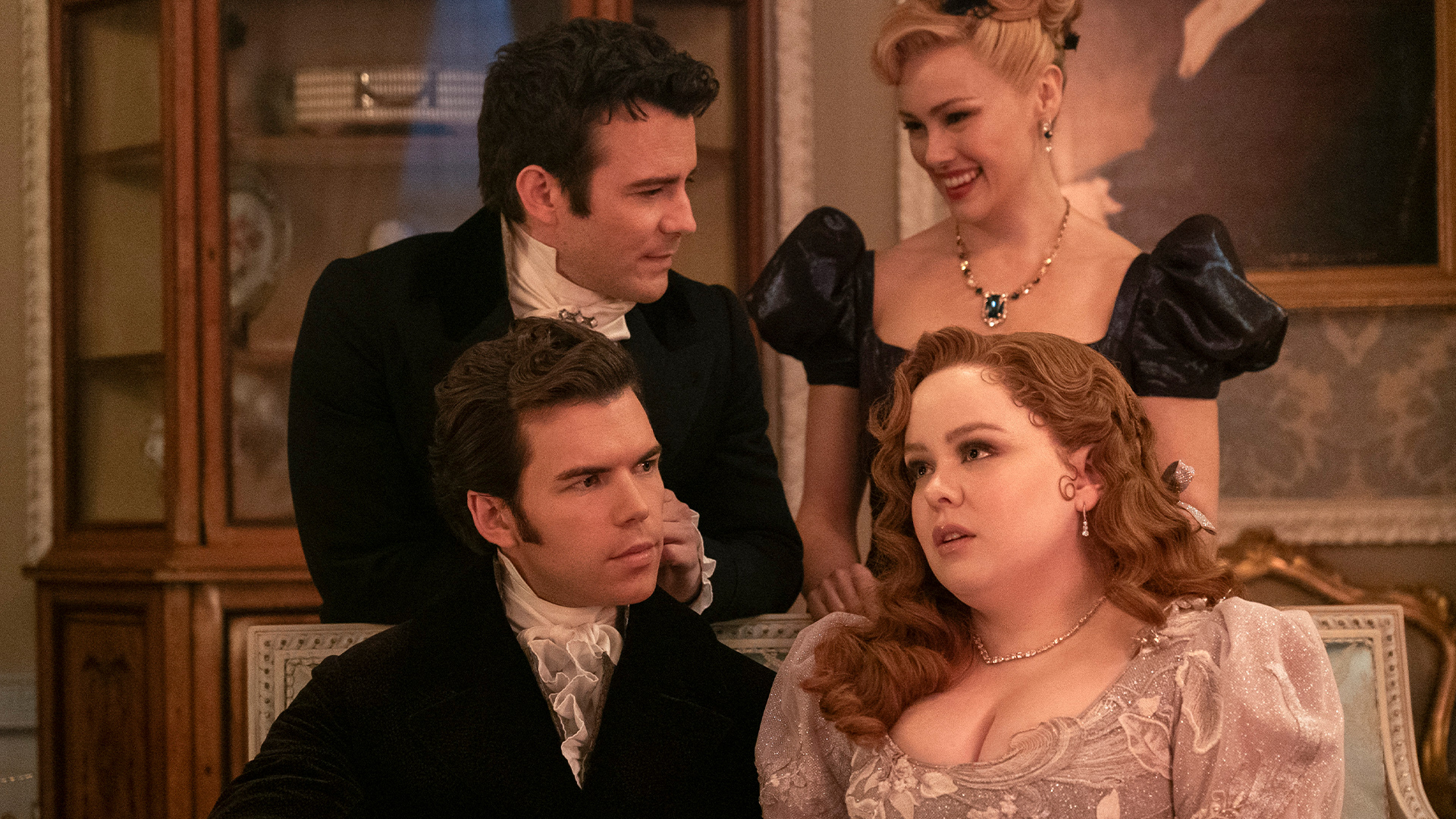
There’s a clear obsession with the courtly aesthetics, the dream of sauntering around in silk and ruffles, attending balls in a pop-culturalised iteration of Regency history in which nobody has to work and the pleasures flow free. For plenty of women, it’s an escape from the modern hells of Tinder and dating discourse (no one gets called a “rat man” in Bridgerton, thank you), where affairs have the safety and privilege to bloom into all-consuming experiences. It’s a show premised around breathless declarations of love, and this season’s lead couple, Penelope (Nicola Coughlan, glorious) and Colin (Luke Newton), have more than plenty.
And the sex here isn’t appealing merely because it’s sex (although, congratulations on Coughlan’s brilliant declaration that this season finally provides representation for “women with my body type, women with perfect breasts”)—what’s wonderful about the big sex scene between Penelope and Colin is that it’s framed within a show that privileges women’s fantasies. Colin works because he’s exactly what Penelope needs: a worshipful companion for a woman who’s on a journey of self-empowerment. She’s been made to feel less than beautiful, so here, Colin ensures that she strips down in front of a mirror so that they can both, together, admire her body.
She feels voiceless, and so she seeks power by writing in secret. The point of conflict, and inevitable resolution, becomes the question of whether she can balance both work and love. Either she has to give up her position as the ton’s anonymous society columnist, Lady Whistledown, to save Colin and the Bridgertons from disrepute if the Queen (Golda Rosheuvel) discovers her identity, or she may have to give up Colin and the Bridgertons.
The stakes are raised when Queen Charlotte offers a cash prize to the person who can sniff out the culprit, and Penelope’s longtime rival Cressida (Jessica Madsen) realises it might be a way out of her current, miserable situation—she’s about to be married off to some surly, old grump, after all.
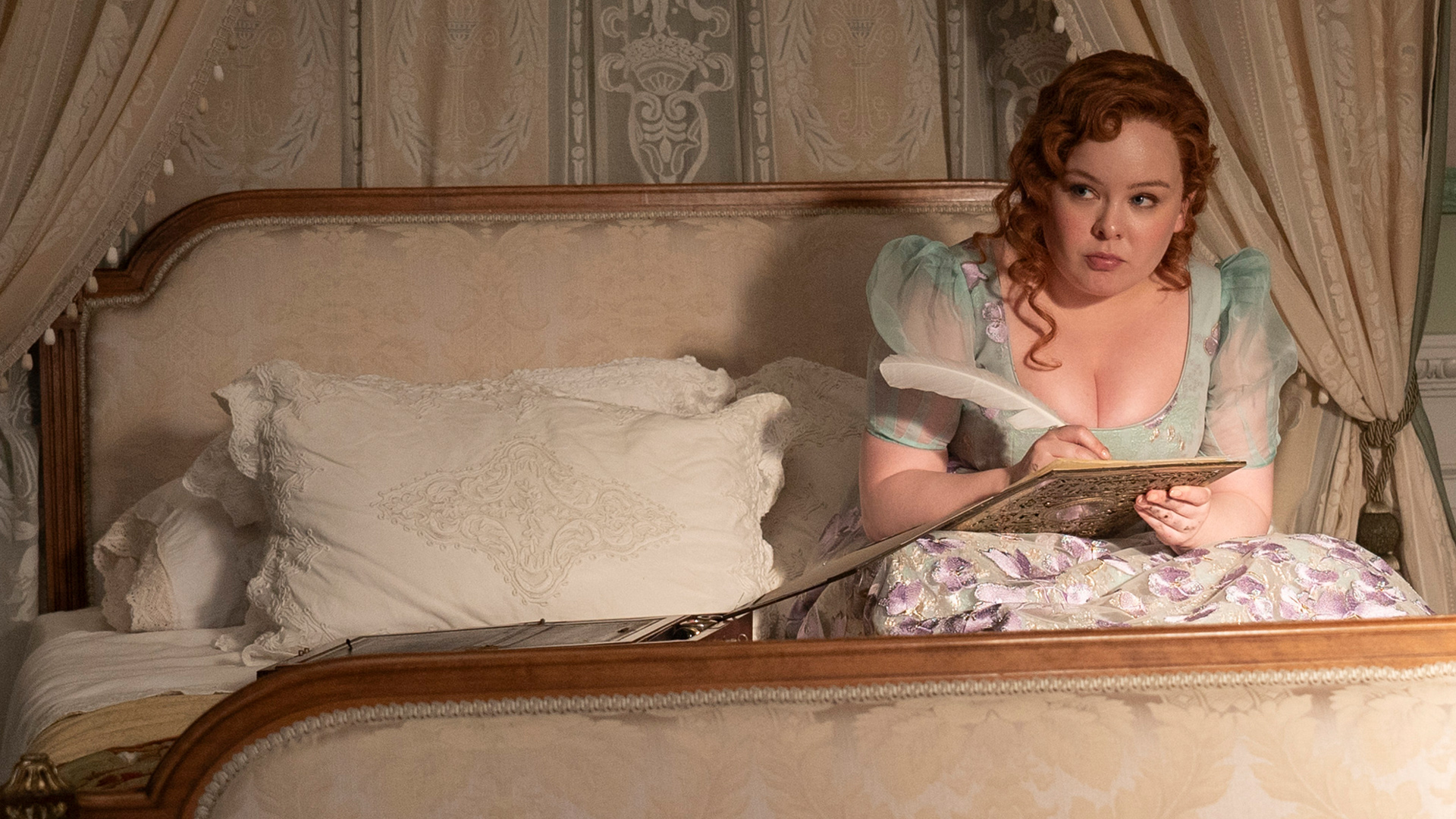
The series stumbles here. It’s always been at its worst when it tries to engage sincerely with the social politics of the ton, purely because those social politics don’t really make sense. Racism doesn’t exist. Homophobia does. Sexism does, too, but only to the extent that it puts young women in a position to be saved from loveless matches by dashing, young men. It should be an escapist fantasy, and yet it still has one heel stuck in history. Season three tries to push this idea that Lady Whistledown’s gossip is actually a feminist triumph, even though we’re consistently reminded of the fact that Whistledown’s “feminism” shut down Eloise’s (Claudia Jessie) blossoming relationship with a political radical genuinely invested in women’s liberation. Ah well.
But, still, it’s promising that the series is opening itself up to future queer narratives and that Francesca (Hannah Dodd) has been flagged as possibly autistic by neurodivergent fans (to clarify, showrunner Jess Brownwell has stated that it wasn’t the show’s initial intention, but that they certainly had conversations about that possibility in the writer’s room). If the series is meant to be about creating an inviting, safe space for romance, then it should be inclusive in that pursuit. Bridgerton has a promising future. And, sure, hopefully it has some more great sex scenes up its sleeve, too.



